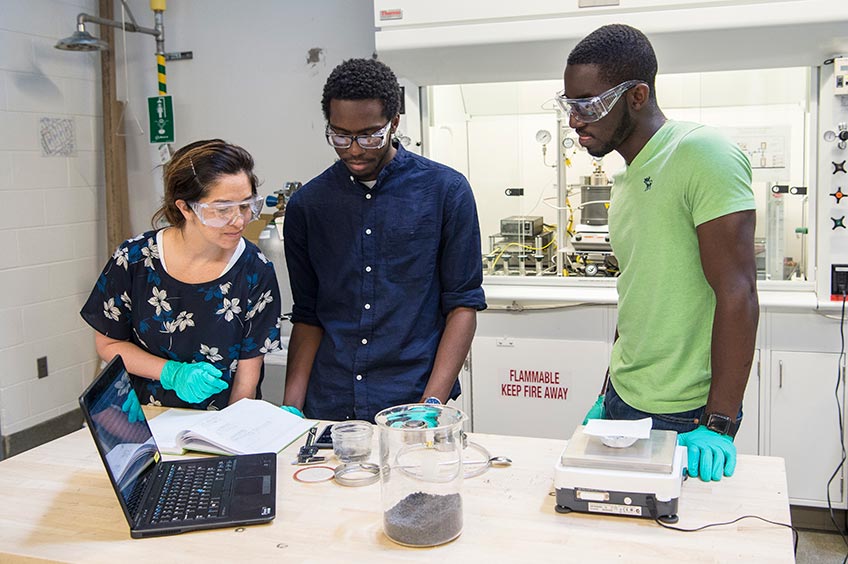Building Energy Science Research
Building energy science research focuses on evaluating innovative approaches to optimizing building performance by using models and data at interrelated scales.

Capabilities
Our areas of expertise include:
- Analysis and simulation of components for efficiency
- Development and optimization of technology packages and building components through laboratory and field-testing validation
- Engagement with industry and cross-cutting collaboration with other NLR centers and laboratories for high-impact innovations
- Deployment of hardware-in-the-loop for thermal storage
- Development of unique laboratory capabilities and facilities.
NLR's building energy science research focuses on three key areas of research and development: energy storage; heating, ventilating, and air conditioning (HVAC) and refrigeration; and performance and controls of grid-interactive buildings.
Energy Storage
NLR researchers aim to increase load flexibility and integration of renewable energy through improved and expanded use of energy storage in buildings. Current capabilities in this area include:
- Development of modeling techniques for predicting the performance and design of thermal storage components and systems for integration with building-scale simulation
- Synthesis and performance optimization of novel material, composite material systems, and thermal energy storage components
- Establishment of techniques to characterize storage systems from laboratory to full-system scale
- Experimental capabilities to test integrated battery energy storage and thermal energy storage systems.
HVAC and Refrigeration
NLR develops, models, characterizes, and validates advanced HVAC and refrigeration systems to maximize their energy efficiency and load flexibility while minimizing environmental impacts. NLR resources and capabilities include:
- Modeling techniques to predict performance of HVAC systems, components, and building integration
- Thermal Test Facility labs that provide a controlled environment to characterize and map the performance of novel HVAC prototypes and perform facilitation design iteration, model validation, and risk reduction prior to field study
- Hardware-in-the-loop experimental capabilities for residential and small commercial systems
- Equipment including a hydronic thermal loop with chiller and thermal energy storage and refrigerated environmental chamber
- Multiple patents for HVAC applications.
Performance and Controls of Grid-Interactive Buildings
NLR develops and validates building controls to improve performance of energy and storage systems, leading to healthier, more efficient grid-interactive buildings. Our work minimizes the cost of implementing flexible building loads with optimized combinations of dispatchable subsystems and on-site energy storage. To meet this goal, NLR research encompasses:
- Integrating and controlling building loads with batteries, thermal energy storage, and other technologies
- Improving the accuracy of building load profiles for evaluation of single and integrated energy storage systems
- Developing innovative sensing and occupant feedback technologies
- Assessing novel load control strategies in simulated and physical settings
- Collaborating with other research areas to identify and address capability gaps for multiscale modeling and validation.
Contact
NLR's buildings research supports the U.S. Department of Energy Building Technologies Office.
Share
Last Updated Dec. 5, 2025
